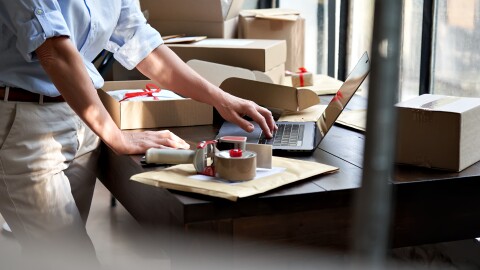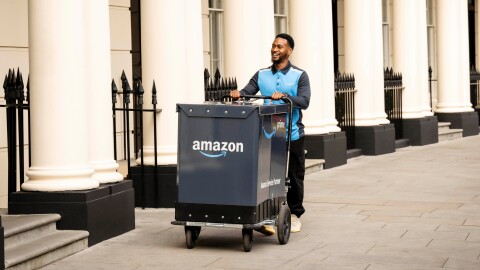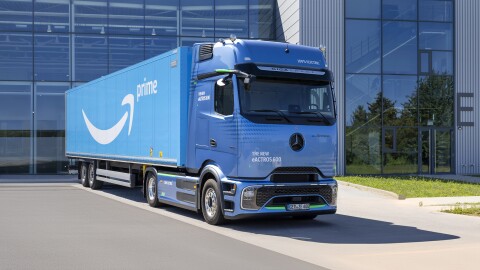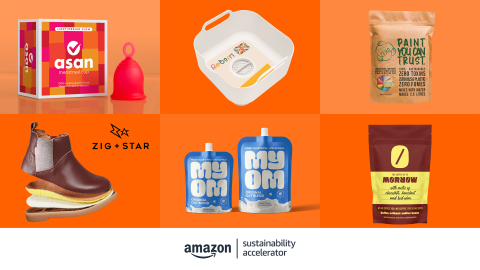Amazon has a history of commitment to sustainability, through innovative programs such as Frustration Free Packaging, Ship in Own Container, our network of solar and wind farms, solar on our fulfillment center rooftops, investments in the circular economy with the Closed Loop Fund, and numerous other initiatives happening every day by teams across Amazon. In operations alone, we have over 200 scientists, engineers, and product designers dedicated exclusively to inventing new ways to leverage our scale for the good of customers and the planet.
Amazon has a long-term goal to power our global infrastructure using 100% renewable energy, and we are making solid progress. With improvements in electric vehicles, aviation bio fuels, reusable packaging, and renewable energy, for the first time we can now see a path to net zero carbon delivery of shipments to customers, and we are setting an ambitious goal for ourselves to reach 50% of all Amazon shipments with net zero carbon by 2030. We are calling this project "Shipment Zero” – it won’t be easy to achieve this goal, but it’s worth being focused and stubborn on this vision and we’re committed to seeing it through.
We aren’t going at this alone. We will continue to use our scale and the feedback customers share with us to enable and encourage suppliers up and down our supply chain to reduce their own environmental impact, just as we’ve done with programmes like Ship in Own Container and Frustration Free Packaging.
To track our progress on this journey and as part of an overall commitment to sharing our sustainability goals, we plan to share Amazon’s company-wide carbon footprint, along with related goals and programs, later this year. This follows an extensive project over the past two years to develop an advanced scientific model to carefully map our carbon footprint to provide our business teams with detailed information helping them identify ways to reduce carbon use in their businesses. Customers are always going to want more selection, faster delivery speed, and lower costs.
We believe that lower costs include lowering the costs to the environment we all live and work in every day. We’ll keep you posted as we work towards achieving Shipment Zero.











